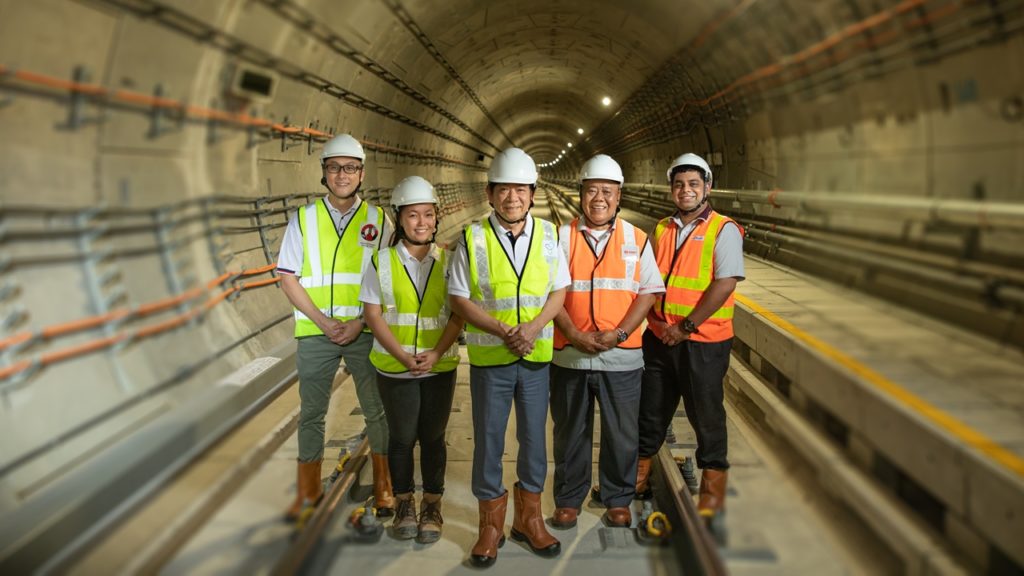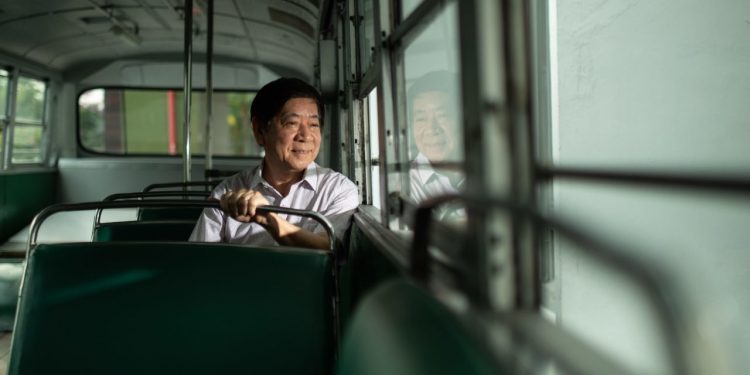This is a Q&A interview with Coordinating Minister for Infrastructure & Minister for Transport Khaw Boon Wan, who received the Medal of Honour at the NTUC May Day Awards 2019. Any extracts should be attributed back to the Minister. 3 May 2019.
How does it feel to receive the highest honour for this year’s May Day?
Naturally, I am overwhelmed! I thank the NTUC Central Committee for this great honour. I deeply appreciate the recognition and more importantly, the friendship I have with many comrade unionists, built up over the years. They have enriched my life and helped support my mission to serve Singapore.
When I receive the Medal, I will be doing so on behalf of the many colleagues who have worked with me over the past 41 years, including the few who died while trying to protect Singaporeans from SARS in 2003.
What does the Labour Movement mean to you?
I was not an automatic fan of the union movement. Having lived in Australia for five years during my university education and suffered the inconvenience of disruptions caused by union strikes, I assumed that unions everywhere were the same. I assumed that their purpose was to fight management for maximum benefits for their members, never mind the impact on the company or the customers they served.
Upon my return to Singapore, I realised how wrong I was to equate the Singapore Labour Movement with the labour movements elsewhere. We are different!
Who converted you?
One day, Sister Diana Chia, who was then with SGH, came to me with a proposal to form a union for the healthcare employees. I was then running the NUH. I thought I was doing a good job, as a pretty enlightened leader, who treated all colleagues as equal, sharing all information and plans with them, solving problems together with them. We were a family!
I read Sister Diana’s proposal as “a slap on my face”. I could not understand why workers should feel such a need to organise themselves. They must have felt the working conditions in NUH were awful.
I did a lot of research into the Singapore Labour Movement, read the old speeches of Comrade Lee Kuan Yew on tripartism, talked to some unionised companies, discussed with some of their unionists. And of course, I also discussed Sister Diana’s idea with my NUH colleagues.
It was an educational journey for me. It was productive. Until then, my preoccupation had been on healthcare policies and hospital administration. While I was aware of the early labour problems in Singapore which led to the formation of the NTUC, the lessons were not internalised or second nature to me.
Sister Diana triggered that process and soon, I was convinced that the NTUC approach to the union movement was not contradictory to my personal approach to leadership. In fact, it was compatible; they were both sides of the same coin.
This led to the successful launch of the Healthcare Services Employees’ Union and its subsequent expansion to other hospitals. I am grateful to Sister Diana and her pioneering team members, like Sister Thanaletchimi of NUH, for opening my mind to the world of tripartism – the Singapore way.
What is your approach to leadership which you find compatible with the NTUC approach?
My approach is a paternalistic one, that all workers are equal and we are all in the same boat, sharing a similar dream to build an organisation that lasts and that takes good care of its workers fairly. The best way to realise such a dream is to serve the customers well as if they were your loved ones. Then the organisation will succeed and the workers’ welfare maximised. One organisation, one team, one family.
How did your partnership with the NTUC evolve as you moved from NUH to other Ministries?
Over the years, as I moved from MOH to other Ministries, I continued the strong partnership with NTUC. When tough policies were being formulated, I looked to the unionists for feedback: Will they work? How can they be improved? Is the timing of implementation appropriate? I remember my many discussions with NTUC on public housing policy, including on how to shorten the waiting time for young couples so that they could set up homes early. I also took on their observation that many such couples wanted to be near their parents so that they could help look after their children. That was how the Proximity Housing Grant came about, with NTUC inputs!
Without NTUC’s support and counsel all these years, my work in the Government would have been very much less effective. Overall, Singapore is blessed to have far-sighted and wise pioneer leaders who forged the Singapore tripartism approach. It ensures that Team Singapore has the best chance of addressing our challenges effectively and seizing new opportunities that come along. It will be a very different Singapore, without NTUC, or the symbiotic relationship between NTUC and PAP. We remind the activists of this special relationship whenever we hold rallies: Majulah NTUC, Majulah PAP, Majulah Singapura!

How can we future-ready transport workers?
By 2040, our car-lite vision should be a reality. This will further raise the quality of life for Singaporeans and make Singapore even more liveable. To realise this vision, we need a first-class public transport system, supported by a first-class transport workforce.
Our strategy is to raise the competency level of our transport workers. This requires a multi-year strategy of consistent investments in capabilities and skills development.
This is where we can draw lessons from the healthcare sector, where the Health Manpower Development Plan (HMDP) has, over the decades, made our health professionals among the best in the world.
The same approach and ambition can be applied in public transport. Newer and better paying jobs will be created along the way. The end result will be an even better commuter experience, rendering private ownership of cars unnecessary.
Such a transformation requires support from all tripartite partners. Success requires a strong ‘One Team’ spirit between Government, regulators and private operators.

